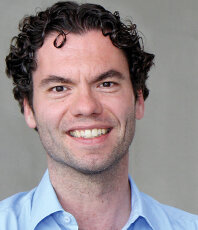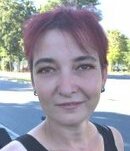
„”
The core facility was formed in February 2013 as a service unit for peptide synthesis and is part of the department of Chemical Biology II. Christian Hackenberger contributes his expertise for the synthesis of advanced post-translationally modified polypeptides as well as unnatural peptide -conjugates. Rudolf Volkmer brings in his experience in peptide synthesis, peptide libraries and peptide arrays on solid supports. Ines Kretzschmar takes care for the execution of the peptide synthesis procedure.
Our aim is to provide synthetic peptides to all research groups at the FMP and users of this facility pay a fee for this service, but overall cost is low. The facility is equipped with two parallel peptide synthesizers and a microwave-assisted synthesizer for challenging peptide sequences, one analytical and one preparative RP-HPLC instruments as well as a MALDI-ToF mass spectrometer.
The full repertoire of standard SPPS methods is employed in this facility to generate linear peptides with or without side chain and / or termini-modifications. More challenging peptides are also made including dye-labeled peptides, head-to-tail or side chain-to-side chain cyclic peptides with and without dye-labeling. Furthermore, peptides containing unnatural amino acids, building blocks or proline-mimetics, D-amino acids, polyethylene glycol chains and phosphorylated amino acids are synthesized. Up to now this facility synthesized 1537 peptides, an average of 192 peptides/year.
In addition to its services, this core facility is embedded in several FMP research projects. For example, our cellulose membrane bound peptide arrays are useful tools to investigate how TARPs modulate AMPA receptor gating, which is investigated in details by the Plested lab. Furthermore, this facility is involved in the project of Pro-Pro dipeptide mimics in context of the VIP BMBF project ProMiCom, coordinated by Ronald Kühne. Additionally, we optimize the synthesis of cyclic cell-penetrating peptides (cCPPs), which have been applied to the delivery of functional nanobodies into specific intracellular compartments by the Hackenberger lab.
People

Prof. Dr. Christian Hackenberger studied chemistry at the University of Freiburg, at the RWTH Aachen and at the University of Wisconsin/Madison (USA). Since 2012, he is Leibniz-Humboldt Professor of Chemical Biology at Humboldt University and Head of the Chemical Biology II Department at the FMP. He is the founder of Tubulis GmbH, a company that develops new, better-tolerated therapeutics against cancer.

Ines was born in the north of Brandenburg, grew up in a large district town in the Free State of Saxony, spent the storm and stress period (studies) in Berlin and stayed there.
She has been trying to produce peptides since 1998, first at the Charité and since 2013 in the Core Facility at the FMP. It doesn't always succeed, but that's rarely her fault (never, actually).
To escape the lab routine, she likes to ride her motorcycle (for the fresh air) and dedicate herself to her allotment (against the lab pallor).
If there is still time, she likes to go bowling.